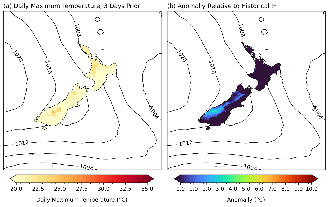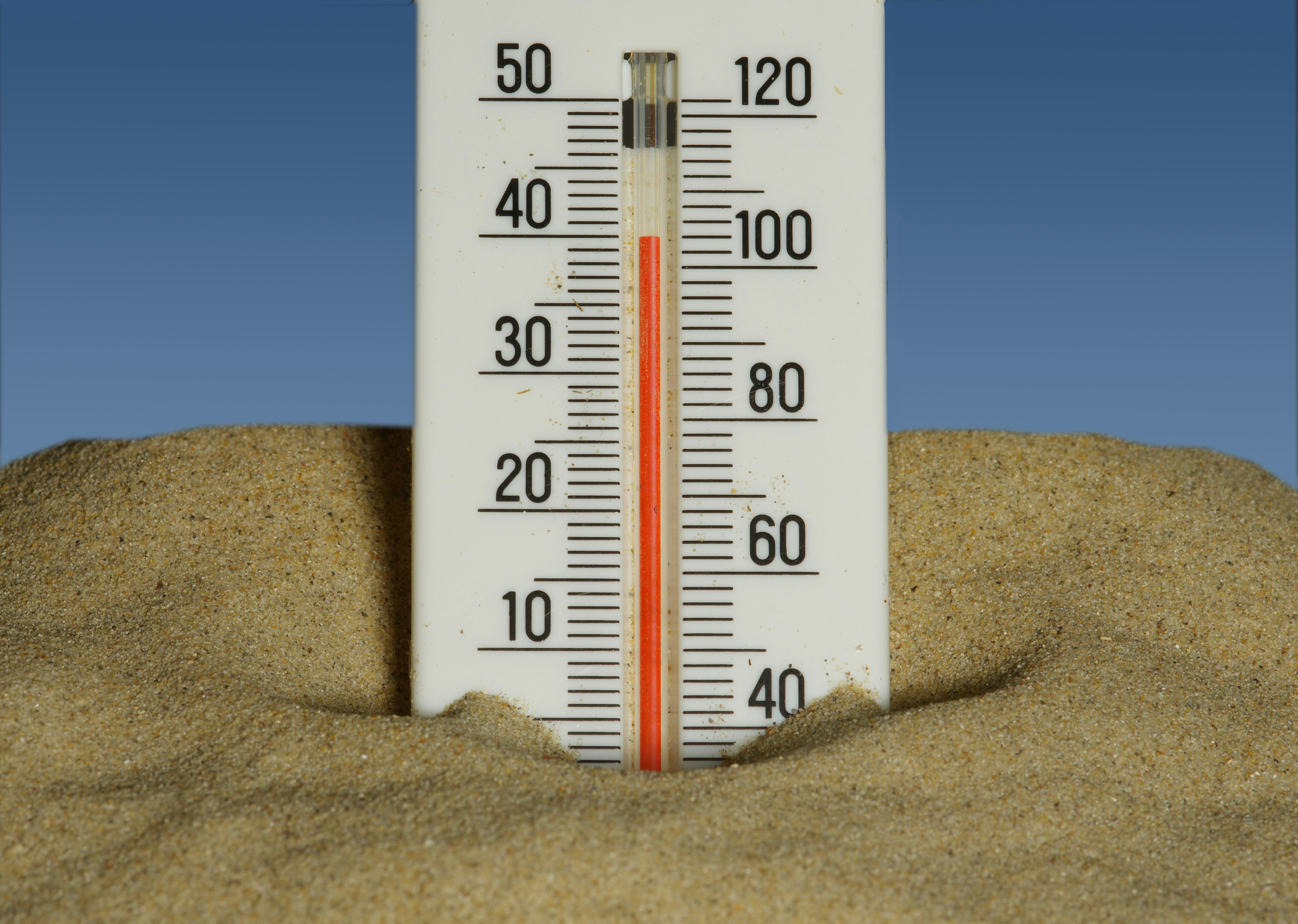Media release
From:
New Zealand summers set to sizzle: new research predicts more heatwaves
New research has revealed New Zealand is on track for a major spike in extreme heat, with heatwaves that currently hit once a decade potentially striking every other summer.
The research by the University of Waikato’s Hamish Lewis and Dr Luke Harrington, along with colleagues from Earth Sciences New Zealand, has been published today in Environmental Research Letters.
It shows that rare heat events are set to become regular features of our climate by the 2050s.
They also found for every 1°C rise in New Zealand’s average temperature, the hottest days of the year will increase by about 1.6°C and in some cases by more than 2.0°C.
These changes are much larger than previous estimates by the Intergovernmental Panel on Climate Change, showing for the first time that the most extreme heatwaves in New Zealand will intensify faster than annual average temperatures.
The research also indicates that rising temperatures inland might be caused by land and air working together, something previously thought to only happen in big continents.
Lead author and Postdoctoral Research Fellow Mr Lewis says we haven’t spent much time exploring how extreme heat will respond to climate change in New Zealand.
“We assumed our ocean surroundings would buffer us from the rapid changes predicted for other parts of the world, like the Mediterranean.
“Older research also supported this assumption but relied on low-resolution models which were not able to capture New Zealand’s complex terrain and local microclimates,” he says.
The study uses high-resolution models to ask how rapidly heatwaves are worsening with climate change.
“When we use models which better capture our complex topography and the influence of drying soils, it turns out changes are happening much more quickly than previously anticipated,” Mr Lewis says.
The team’s findings could also mean that future predictions of extreme heat in other parts of the world are too low.
The authors also explored the possibility of record-breaking heatwaves happening across New Zealand, and found exceptional events were capable of occurring even in today’s climate.
One of their modelled summers saw an intense high-pressure system come to a standstill over the north of the country, resulting in afternoon temperatures reaching the mid-30s across much of the North Island for five consecutive days.
Senior Lecturer in Climate Change Dr Harrington says overseas examples show that record-shattering events can and do happen, particularly when global temperatures rise very quickly.
“The UK had their first 40-degree day back in 2022 when they thought it to be impossible. Now, we have evidence that a similarly extreme event could impact the North Island – something even worse than the 1973 Canterbury heatwave.
“While very rare, such events are physically plausible and fit with our understanding of how a changing climate interacts with the highly variable weather we’re used to in Aotearoa,” he says.
The research suggests people should be preparing for heatwaves like this, to help communities stay safe when they eventually occur.
“We no longer have any excuses for inaction. We now know that extreme heat is intensifying rapidly, hot events will become commonplace by the middle of the century, and we could get caught off-guard by an exceptional event in any given summer.
“The good news is that with a bit of planning ahead, we can keep the impacts to a minimum,” Dr Harrington says.
Multimedia






 New Zealand
New Zealand



